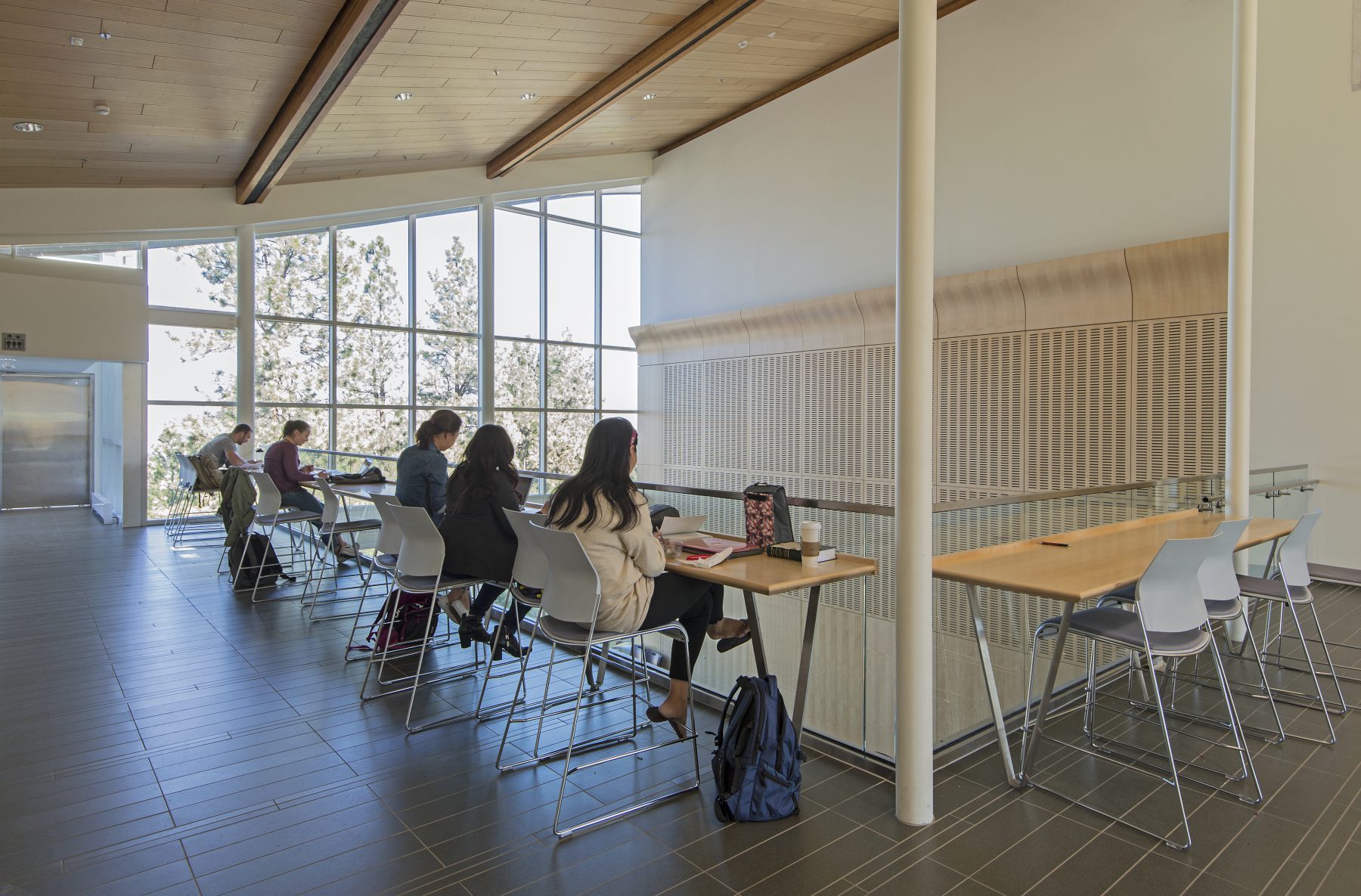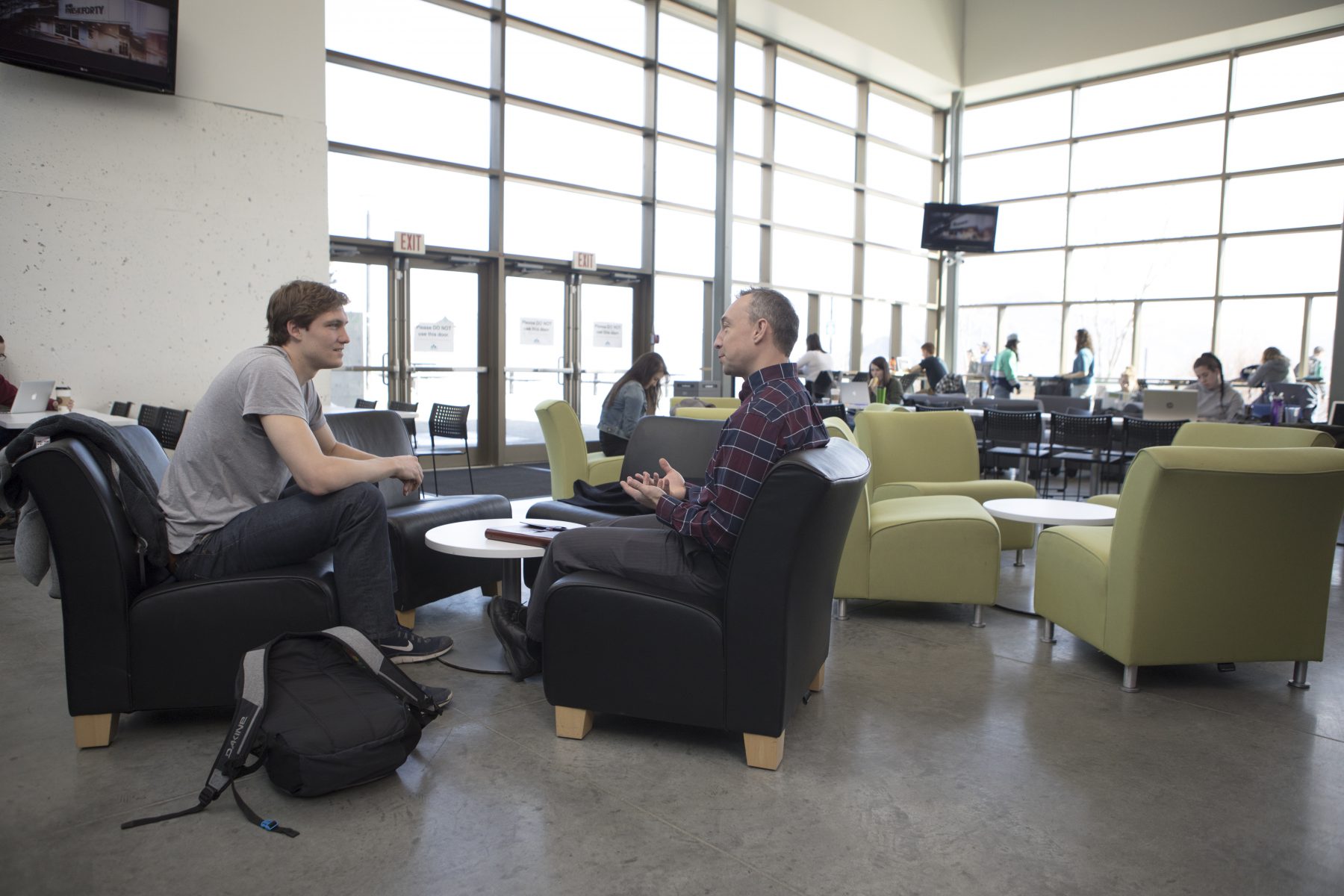Considering bringing a Thompson Rivers University (TRU) student into your organization? Jessi Guercio from Thompson Rivers shares about what your options are to work with TRU students, what is involved, and how students can support your business or non-profit.
What is work-integrated learning (WIL) and what types of WIL programs does TRU have?
Work-integrated learning (WIL) is a model of education that integrates a student’s academic studies within a workplace. Usually, WIL experiences are a partnership between an academic institution, a host organization/employer, and a student. This learning model provides students with experiential learning and skills development related to their field of study.
You can bring a TRU student onboard your organization in a variety of ways including co-operative education (co-op), apprenticeship, undergraduate research, internships, professional practicums, field school, community-based service learning, and capstone/honours projects. Find out more about TRU’s WIL programs here.
 Photo Credit: Thompson Rivers University
Photo Credit: Thompson Rivers University
Am I eligible to hire a WIL student and what are my responsibilities as an employer?
TRU WIL students can work with almost any business, governmental, or not-for-profit organization.
If you are looking to bring on a student through co-op, you will need comply with all provincial and federal employment legislation. Additionally, as a co-op employer, you will be responsible for providing adequate supervision to the student and will need to provide an evaluation of the student’s performance at the middle and end of their work term.
How can TRU students support my organization?
TRU students can add value to your workplace in a variety of ways:
- Get support for a specific project or problem your organization is facing
- Add staffing to support your day-to-day operations
- Expose your team to new ideas and creative thinking
- Build your pipeline of potential future hires
- Contribute to a stronger workforce and economy through providing skills training and experience to the future generation of skilled workers
What types of roles or projects do students normally take on?
There are many roles or projects that a student can take on within your organization. Here are a few examples:
- Creating and managing your digital marketing and social media strategies
- Covering entry-level roles HR, IT, accounting, or finance
- Researching and implementing technology solutions such as a website or e-commerce site
- Coordinating a project or running a fund-raising campaign
- Providing staffing for tourism, hospitality, or arts organizations.
 Photo Credit: Thompson Rivers University
Photo Credit: Thompson Rivers University
When do I need to start recruiting to bring a student onboard?
Most WIL programs at TRU follow the semesters within the academic school year (Jan – April, May – Aug, Sept – Dec). If you are looking to recruit a student, we recommend that you start the recruitment process the semester before you want to bring the student onboard. For example, if you want the student to start in May, you should be looking to recruit between Jan – April.
What types of supports does TRU offer my business?
TRU can support organizations with finding the most suitable candidate for a work term. The first step is to reach out and have a conversation with the staff at TRU’s Career and Experiential Learning (CEL) office.
Partnering with CEL as an employer empowers organizations to help develop future graduates who will make our community and your organization stronger. You will have the opportunity to build meaningful relationships with TRU students, increase the visibility of your brand within the TRU community and gain access to talented individuals preparing for the workforce. TRU is committed to supporting the diverse student population in obtaining equitable access to experiential learning and employment opportunities.
TRU provides comprehensive recruitment support for employers. The CEL office will assist you in posting your position, organize and host multiple forms of interviews (in-person or virtual), assist with follow-up and offers of employment.
What are the salary expectations of hiring a WIL student?
WIL positions can be paid, but TRU does offer a few unpaid WIL types including service learning and capstone projects. The unpaid positions are typically short in duration and not full-time. For paid WIL positions, the salary is based on the student’s skills, your organization’s resources, and industry standards. Student salaries may vary according to many factors, including the student’s previous work experience, year of study and assigned responsibilities. It is a must that employers adhere to BC’s employment standards and pay at least minimum wage and any required deductions/benefits.
 Photo Credit: Thompson Rivers University
Photo Credit: Thompson Rivers University
Is there funding available to help me in hiring a student?
Many organizations may be able to take advantage of some of the provincial and federal funding opportunities to hire a student. You can find out more about available funding here and here.
Who can I talk to regarding hiring a student?
Reach out to Jessi Guercio (jguercio@tru.ca), Employer Liaison Coordinator, at TRU and they would be happy to walk you through the first steps in exploring your options in bringing a TRU student onboard to your organization.
Contributing Author

Jessi Guercio,
Employee Liaison Coordinator,
Thompson Rivers University
Connect with Jessi on LinkedIn